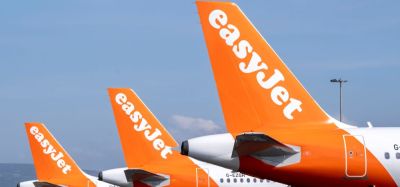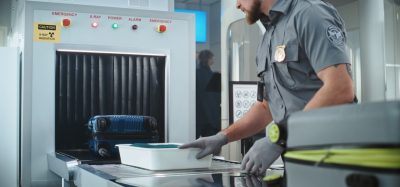IATA’s Safety Audit for Ground Operations (ISAGO)
Posted: 30 September 2008 | Mike O'Brien, Director Programme Implementation/Auditing, International Air Transport Association (IATA) | No comments yet
IATA’s Safety Audit for Ground Operations (ISAGO) is now operational. The first 10 audits are now completed and 50 plus more are in the pipeline to end 2008. It is clear that IATA have created something that the industry needs and values.
IATA’s Safety Audit for Ground Operations (ISAGO) is now operational. The first 10 audits are now completed and 50 plus more are in the pipeline to end 2008. It is clear that IATA have created something that the industry needs and values.
ISAGO is designed for ground handling companies operating at airports. The aims of the programme are simple:
- Improving operational safety
- Reducing ground damage
- Promoting audit efficiency
For the first time, we have a common set of globally applicable operating standards for ground handlers, coupled with an audit programme to assess conformity with those standards. Safety is at the heart of the programme, but there are also huge efficiency gains to be made. Airlines spend enormous amounts of resources annually in carrying out audits of their ground service suppliers at all their stations. However, not only do the airlines execute the audits, but the ground service providers have to receive the multiple audits and respond to them.
Join us live: Shaping the Next Generation of Hold Baggage and Air Cargo Screening
Join us live for an insightful webinar on 11th December at 14:00 GMT, in collaboration with Smiths Detection, as we explore the strategic balance of operational efficiency, regulatory compliance, and sustainability in high-volume security environments.
This session offers a focused look into future-proofing your security strategy.
Key learning points
- Cost Reduction: Strategies to minimize bag travel time while simultaneously reducing operational costs.
- Regulatory Roadmap: Insights into the next wave of regulatory changes and their impact on future investment decisions.
- Sustainable Systems: Practical approaches to building sustainability into security systems and lowering the total cost of ownership (TCO).
- Scalable Solutions: Real-world examples of scalable systems supporting current airport growth and preparing for tomorrow.
Register now for expert insights, case studies, and actionable strategies on operational efficiency!
The programme auditing model that has been adopted utilises existing airline auditors who currently do such audits, but pools the resources, such that any airline that is a member of the pool will only do a fraction of the audits that it used to do before ISAGO. The principle of the pool is that airlines are able to rely on audits done by other pool members, because they know that each pool auditor is using the common ISAGO standards and meets established qualification, experience and training criteria. While it is effective in ISAGO, the pool idea is not a new concept since IATA already manages the IATA Fuel Quality Pool (IFQP) and the De/Anti-Icing Quality Control Pool (DAQCP), both of which operate on similar lines.
To date, 20 IATA Member Airlines have joined the pool, with as many again in the process of signing the formal agreement to become members. It is encouraging to see such a strong level of support from members at this early stage of the programme implementation. It is really an act of faith, because the full benefits – in terms of reduction in audit numbers that members expect from the programme – will not be realised until more audits are conducted.
ISAGO introduces a new concept in the ground handling audit environment in that audits are conducted also at the corporate level. Auditing ground handling companies at headquarters and (as necessary) at regional and country corporate offices, will enable the full span of management and control of all stations to be established. For corporate audits, the effort is focused on ‘OMS’ – Organisation and Management Systems. The corporate audits are typically brief, usually just two days on-site and are carried out by auditors from Audit Organisations that have been accredited already under IATA’s Operational Safety Audit programme (IOSA) for airlines. These organisations already have lead auditors skilled in auditing these types of standards, whereas the airline auditors are more accustomed to auditing the more practical aspects at the station level.
Since there will be far more station audits than corporate audits (for example, a typical multinational handler may have one headquarters, three or four regional offices and 100 plus stations), the extent of involvement of IOSA Audit Organisations in the programme is relatively small. Nevertheless, the experience so far with ISAGO corporate audits completed by our AOs shows the value of their experience and skills.
Audit costs
During the development phase of ISAGO, handlers expressed concern that the new auditing environment could require them to pay for something that they currently get – station audits done by airlines – for free. In response to this concern, IATA examined the whole financial structure of running ISAGO and is now able to offer the programme to all handlers at the lowest possible cost.
The costs inherent to the execution of the ISAGO audits are as follows:
Corporate Audit
Ground Service Providers (GSPs) cover the costs of the corporate audits conducted by the Audit Organisations (AOs) accredited by IATA. The corporate audit usually takes place at the headquarters of the company. In some cases, a corporate audit might be required also at the regional and/or country offices. The cost consists of USD 5,000 professional fees for the AO effort, plus travel and hotel accommodation expenses of the AO auditor charged on a straight cost recovery basis, but not to exceed USD 5,000. IATA will always strive to allocate auditors based on the minimum travel cost.
Station Audit
The station audits are conducted by auditors from participating airlines, which are organized through a pool managed by IATA. The Auditing Airlines cover their own costs inherent to the execution of station audits (at airports level), to include travel and accommodation of their auditors. The only cost related to station audits applicable to GSPs is a fee of USD 500 (at each station), which is a software license fee, as each station will require to become a user of the audit management software (Q5 Systems) in order to follow-up on the corrective actions with the audit team.
All of the other costs inherent in running the ISAGO programme are covered by IATA, viewing ISAGO as another important IATA safety initiative. As such, we want to make the programme as accessible as possible and to promote the most extensive early penetration into all regions and we have not forgotten our members, ISAGO auditor training is free of charge, as is membership of the audit pool.
Auditor training
IATA’s Training and Development Institute conducts the core training component, the ISAGO Auditor Training Course. This course has been structured to take experienced ground auditors and familiarise them with the ISAGO principles, practices and standards. Having all ISAGO auditors working to a common standard and philosophy is a great improvement, in and of itself, over existing audit programmes. The ISAGO Programme Manual also lays down strict pre-requisites for ISAGO auditors, including not only successful completion of this training course, but also conducting initial audits under the supervision of an Evaluator, before being released to ‘fly solo’.
Following the decision to waive the fee of the auditor training course for IATA member airlines, IATA has conducted an additional six training courses from July to September in Montreal, Geneva, London, Santiago, Singapore and Amsterdam. Participating airlines have responded positively to this initiative, as all courses were sold out. At least two more courses are planned in the remainder of 2008 to satisfy outstanding demand. In total, over 150 auditors from 30 airlines have recently completed ISAGO training. Station audit teams typically comprise three auditors and they are on-site for three days to cover all aspects of the station operation starting from station management and working through all functional aspects such as passenger and baggage handling and aircraft loading. Once the pool is fully formed, these three auditors would normally all be from the same airline – but in the early days we are seeing the benefits of forming joint teams to share their experience.
Audit standards
The ISAGO Standards Manual is available for free download on the website www.iata.org/isago. The standards have been developed by industry specialists from the airline and ground handler community, with input and advice also from airport authorities and regulators. The standards are clearly defined in all categories pertinent to both corporate and station audits. Each audit can easily be tailored to the nature and extent of audit operations conducted by any handler at any station.
The ISAGO Programme Manual, which provides all details on how the programme is managed and run, and which includes all details for example on auditor qualification, is also available on the website.
Quality Processes
Any programme that establishes itself based on a principle that parties will utilise the results from an audit they did not carry out themselves must inherently guarantee, as far as it is possible, that each audit is done correctly, consistently and completely. Quality assurance is built into the programme at every stage. The audit organisations have already undergone intensive screening by IATA prior to being accredited and their performance is continually monitored and evaluated by IATA in order to retain accreditation. ISAGO auditors must meet strict qualification and experience criteria and will also be continually monitored and evaluated by the airlines to which they belong. The ISAGO standards are rigorous and consistent and will be continually improved as the programme advances. The ISAGO Programme Manual governs every aspect of the programme and ensures that actions are taken in a consistent manner.
Marko Tahtivaara, IATA’s Assistant Director, is responsible for Quality Assurance of Safety Audit programmes. “Virtually all of the experience we have developed in IOSA on the QA side can be applied to ISAGO,” notes Tahtivaara. “All of our QA procedures are documented and consistently applied.” Given that Tahtivaara reports directly to the Senior VP of IATA’s Safety, Operations and Infrastructure Division, Günther Matschnigg, he is assured of an independent perspective in his quality assessments of ISAGO practices.
The Quality Control processes developed for IOSA, in terms of careful examination of all audit reports before they are released, will also be applied in ISAGO.
Growing interest from industry
From the ground handler perspective, interest in the programme appears to be intensifying in all regions. Several large multinational handlers have already committed, starting small and working progressively through their stations on a timeframe mutually agreed with IATA. Regulatory and airport authorities are intensely interested and ICAO provides little guidance in this area. We have the opportunity, with an industry-led programme, to achieve the same goal that everyone is interested in, improved ramp safety, without having to resort to what would inevitably be a patchwork of regulation.
Free Information Seminars
Since May, a total of 500 enthusiastic attendees have demonstrated the growing interest in the ISAGO programme at the information seminars held in Kuala Lumpur, Amsterdam, Johannesburg, Santo Domingo and Seattle. IATA will be hosting the next ISAGO information seminar to Amman on 15-16 October hosted by Royal Jordanian, to Beijing on 27-28 October, hosted by the Civil Aviation Administration of China and to Guayaquil (dates TBC) hosted by TAGSA. All seminars are open to airlines, ground handling companies, regulatory agencies and airports and are offered completely free of charge. Agenda and registration for the seminars are available at www.iata.org/isago.
Joseph Suidan has recently joined the ISAGO team as Assistant Director. “I came into IATA with a certain expectation of being involved with an interesting programme, but I have been quite blown away by the intensity and excitement, both in the office and when we are on the road with our information seminars. I am heading up a great team, very committed to delivering the ISAGO programme and more particularly to achieving the benefits we know we can bring.”
Ground handling companies interested in being part of the ISAGO programme can fill in the form available on the ISAGO website, to request an ISAGO audit. IATA advises that audit slots in 2008 are filling rapidly, so applications should be made as soon as possible.
Stay Connected with International Airport Review — Subscribe for Free!
Get exclusive access to the latest airport and aviation industry insights from International Airport Review — tailored to your interests.
✅ Expert-Led Webinars – Gain insights from global aviation leaders
✅ Weekly News & Reports – Airport innovation, thought leadership, and industry trends
✅ Exclusive Industry Insights – Discover cutting-edge technologies shaping the future of air travel
✅ International Airport Summit – Join our flagship event to network with industry leaders and explore the latest advancements
Choose the updates that matter most to you.
Sign up now to stay informed, inspired, and connected — all for free!
Thank you for being part of our aviation community. Let’s keep shaping the future of airports together!

















